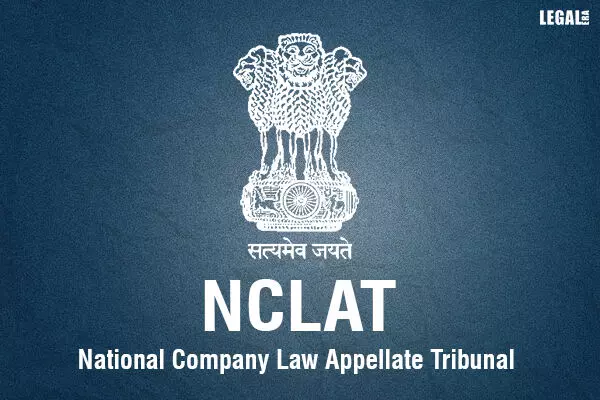- Home
- News
- Articles+
- Aerospace
- Artificial Intelligence
- Agriculture
- Alternate Dispute Resolution
- Arbitration & Mediation
- Banking and Finance
- Bankruptcy
- Book Review
- Bribery & Corruption
- Commercial Litigation
- Competition Law
- Conference Reports
- Consumer Products
- Contract
- Corporate Governance
- Corporate Law
- Covid-19
- Cryptocurrency
- Cybersecurity
- Data Protection
- Defence
- Digital Economy
- E-commerce
- Employment Law
- Energy and Natural Resources
- Entertainment and Sports Law
- Environmental Law
- Environmental, Social, and Governance
- Foreign Direct Investment
- Food and Beverage
- Gaming
- Health Care
- IBC Diaries
- In Focus
- Inclusion & Diversity
- Insurance Law
- Intellectual Property
- International Law
- IP & Tech Era
- Know the Law
- Labour Laws
- Law & Policy and Regulation
- Litigation
- Litigation Funding
- Manufacturing
- Mergers & Acquisitions
- NFTs
- Privacy
- Private Equity
- Project Finance
- Real Estate
- Risk and Compliance
- Student Corner
- Take On Board
- Tax
- Technology Media and Telecom
- Tributes
- Viewpoint
- Zoom In
- Law Firms
- In-House
- Rankings
- E-Magazine
- Legal Era TV
- Events
- Middle East
- Africa
- News
- Articles
- Aerospace
- Artificial Intelligence
- Agriculture
- Alternate Dispute Resolution
- Arbitration & Mediation
- Banking and Finance
- Bankruptcy
- Book Review
- Bribery & Corruption
- Commercial Litigation
- Competition Law
- Conference Reports
- Consumer Products
- Contract
- Corporate Governance
- Corporate Law
- Covid-19
- Cryptocurrency
- Cybersecurity
- Data Protection
- Defence
- Digital Economy
- E-commerce
- Employment Law
- Energy and Natural Resources
- Entertainment and Sports Law
- Environmental Law
- Environmental, Social, and Governance
- Foreign Direct Investment
- Food and Beverage
- Gaming
- Health Care
- IBC Diaries
- In Focus
- Inclusion & Diversity
- Insurance Law
- Intellectual Property
- International Law
- IP & Tech Era
- Know the Law
- Labour Laws
- Law & Policy and Regulation
- Litigation
- Litigation Funding
- Manufacturing
- Mergers & Acquisitions
- NFTs
- Privacy
- Private Equity
- Project Finance
- Real Estate
- Risk and Compliance
- Student Corner
- Take On Board
- Tax
- Technology Media and Telecom
- Tributes
- Viewpoint
- Zoom In
- Law Firms
- In-House
- Rankings
- E-Magazine
- Legal Era TV
- Events
- Middle East
- Africa
NCLAT New Delhi Rules: No Automatic Right To Withdraw And Refile Section 9 Applications Under IBC

NCLAT New Delhi Rules: No Automatic Right To Withdraw And Refile Section 9 Applications Under IBC
The National Company Law Appellate Tribunal (NCLAT), Principal Bench, New Delhi, comprising Justice Ashok Bhushan (Chairperson), Barun Mitra (Technical Member), and Arun Baroka (Technical Member), has ruled that an applicant does not have an inherent right to withdraw an application filed under Section 9 of the Insolvency and Bankruptcy Code (IBC) at any stage and subsequently request permission to file a new application.
The decision arose from two appeals challenging orders from the National Company Law Tribunal (NCLT), Ahmedabad. These appeals involved Section 9 applications filed by Florex Tiles (Appellant) under the IBC.
In the first appeal, the Appellant sought to recover an operational debt of ₹3,51,72,942 from M/s Greenstone Granite Pvt. Ltd. The NCLT had initially registered the application and issued a notice to the Corporate Debtor. The Corporate Debtor contested the application, alleging that the Appellant had submitted false evidence. The Appellant’s counsel later requested to withdraw the application, which the Corporate Debtor opposed. The NCLT allowed the withdrawal but imposed a cost of ₹50,000 to be paid to the Respondent. The Appellant appealed this decision to the NCLAT, arguing that the NCLT should have granted permission to file a new application.
The NCLAT addressed the interpretation of Order 23 Rule 1, which governs the withdrawal of suits and the conditions under which a new suit may be filed. The Appellant's claim that permission to file a new suit should be automatic upon withdrawal was deemed inconsistent with Order 23 Rule 1, sub-rule (3), which requires court satisfaction for allowing a fresh suit.
The NCLAT emphasized that withdrawing a suit does not automatically entitle the plaintiff to file a new one. The adjudicating authority must be convinced that there are sufficient grounds to permit a fresh suit. The NCLAT highlighted that IBC proceedings are bound by strict timelines, and the Appellant had delayed their application without valid reasons.
The NCLAT referenced Supreme Court decisions in K.S. Bhoopathy & Ors. v. Kokila & Ors. and V. Rajendran & Anr. v. Annasamy Pandian (Dead) through legal representatives Karthyayani Natchiar, which affirm that the right to withdraw a suit with permission to file a new one is not automatic but subject to court discretion based on the conditions specified.
In conclusion, the NCLAT upheld the NCLT’s decision to allow the withdrawal of the application without granting the liberty to refile, noting the need to maintain procedural integrity and timelines under the IBC. However, the NCLAT found the ₹50,000 cost imposed by the NCLT to be unnecessary and thus not warranted.



